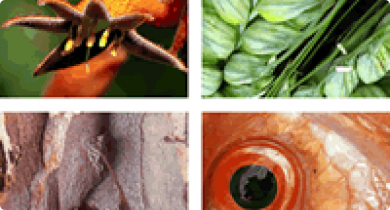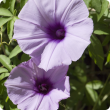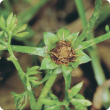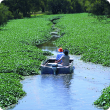Weeds
Weeds pose a serious risk for primary producers as they can impact on market access and agricultural production.
In 2006/07, each Western Australian agricultural business spent an average of $29 376 ($341 million total) on weed control (Australian Bureau of Statistics).
Weed control is a shared responsibility between landholders, grower groups, biosecurity groups and the Department of Primary Industries and Regional Development.
To protect WA’s agriculture, the department:
- works with landholders, grower groups, community groups and biosecurity groups
- regulates weeds under the Biosecurity and Agriculture Management Act 2007
- provides a weed identification service
- provides a predictive simulation tool called weed seed wizard
- provides information on weed control, crop weeds, regulated/declared plants and herbicides
- contributes to social science through weedwatcher.
For advice on weeds search our website, the Western Australian Organism List or contact our Pest and Disease Information Service (PaDIS).
For diagnostic services, please contact our Diagnostic Laboratory Services.
Filter by search
Filter by topic
- Declared plants (180) Apply Declared plants filter
- Control methods (78) Apply Control methods filter
- Chemicals (67) Apply Chemicals filter
- Herbicides (65) Apply Herbicides filter
- Crop weeds (59) Apply Crop weeds filter
- Weeds of National Significance (58) Apply Weeds of National Significance filter
- Crops (55) Apply Crops filter
- Grains (49) Apply Grains filter
- Grains research & development (30) Apply Grains research & development filter
- Biosecurity & quarantine (19) Apply Biosecurity & quarantine filter
- Biosecurity (18) Apply Biosecurity filter
- Invasive species (14) Apply Invasive species filter
- Mechanical, physical and cultural (13) Apply Mechanical, physical and cultural filter
- Pest plants (12) Apply Pest plants filter
- Pests (11) Apply Pests filter
- Wheat (9) Apply Wheat filter
- Diseases (9) Apply Diseases filter
- Pastures (8) Apply Pastures filter
- Lupins (6) Apply Lupins filter
- Canola (6) Apply Canola filter
- Pasture management (5) Apply Pasture management filter
- Pest insects (5) Apply Pest insects filter
- Livestock management (4) Apply Livestock management filter
- Oats (4) Apply Oats filter
- Livestock & animals (4) Apply Livestock & animals filter
- Climate, land & water (4) Apply Climate, land & water filter
- Crop diseases (4) Apply Crop diseases filter
- Biological control (4) Apply Biological control filter
- Production & postharvest (3) Apply Production & postharvest filter
- Pest animals (3) Apply Pest animals filter
- Plant biosecurity (3) Apply Plant biosecurity filter
- Feeding & nutrition (3) Apply Feeding & nutrition filter
- Horticulture (3) Apply Horticulture filter
- Quarantine (2) Apply Quarantine filter
- Pulses (2) Apply Pulses filter
- Rangelands (2) Apply Rangelands filter
- Soils (2) Apply Soils filter
- Postharvest (2) Apply Postharvest filter
- Land use (2) Apply Land use filter
- Managing soils (2) Apply Managing soils filter
- Grains Research & Development (2) Apply Grains Research & Development filter
- Barley (2) Apply Barley filter
- Irrigated crops (2) Apply Irrigated crops filter
- Livestock biosecurity (2) Apply Livestock biosecurity filter
- Emergency response (1) Apply Emergency response filter
- Birds (1) Apply Birds filter
- Agribusiness Food & Trade (1) Apply Agribusiness Food & Trade filter
- Amphibians and reptiles (1) Apply Amphibians and reptiles filter









